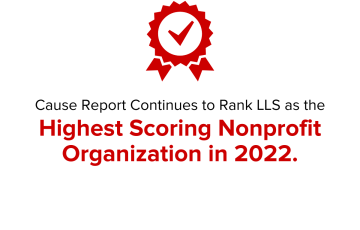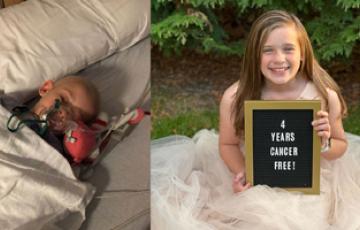Search Results

The History of Leukemia
Table of contents

Is Leukemia Genetic?
Table of contents
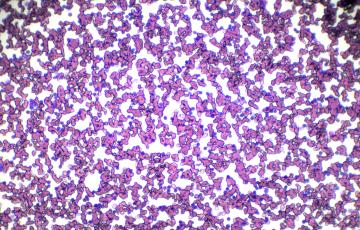
Predisposing factors to leukemia
Table of contents:
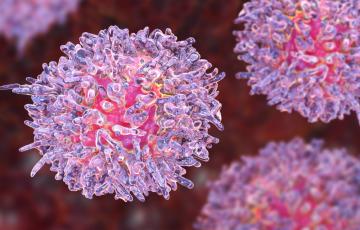
“Stages” of Leukemia: Understanding Classification and Progression
Table of contents
Zebrafish: A New Way to Study Leukemia
David Traver, Ph.D., a professor of Cellular and Molecular Medicine at the University of California, San Diego, is the recipient of an LLS Career Development Program (CDP) grant. Traver’s research laboratory is using the zebrafish as a model to study the biology of cancer.
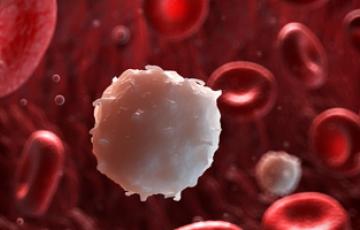
Leukemia vs. lymphoma: What you need to know
Table of contents
Ask the Doctor Part 1: Five Questions about Leukemia
Leukemia Survivor, Myrrah Talks to Dr. Nichols about the Latest in Leukemia Research and Treatment
Leukemia
Leukemia begins in a cell in the bone marrow. The cell undergoes a change and becomes a type of leukemia cell. Once the marrow cell undergoes a leukemic change, the leukemia cells may grow and survive better than normal cells. Over time, the leukemia cells crowd out or suppress the development of normal cells. The rate at which leukemia progresses and how the cells replace the normal blood and marrow cells are different with each type of leukemia.
LLS Partner Advances Promising Therapy for Rare Leukemia
A potential new therapeutic approach for blastic plasmacytoid dendritic cell neoplasm (BPDCN), a very rare form of blood cancer with no standard treatment, continues to show promise as it moves through early clinical trials. The Leukemia & Lymphoma Society (LLS) has a long history of supporting the development of SL-401, a targeted therapy that has shown significant anti-tumor effects.
New Study Shows 9/11 Responders Have Higher Rates of Leukemia
All 9/11 responders put their own lives at risk to save others from the events that occurred at the World Trade Center (WTC) on September 11, 2001, in New York City. Since then, several studies have shown elevated rates of cancers such as multiple myeloma, prostate cancer and thyroid cancer among first responders and those who worked nearby.
CEO Who Lost Mom to Leukemia Works to Advance Cures
A month after Dr. Matt McManus of Austin, Texas, lost his mother to leukemia, he joined LLS as the 2016 Austin Light The Night Corporate Walk Chair. In her honor, he is helping to fund research to find cures and ensure access to treatments for blood cancer patients.
#ASH15 Day 3: Big Advances in Treating Chronic Lymphocytic Leukemia
John Byrd, M.D., of the Ohio State University Comprehensive Cancer Center, is one of the world’s renowned scientists in the field of blood cancer. LLS has been supporting his work for the better part of two decades. While Byrd has, of late, turned his attention to the problem of finding better therapies for patients with acute myeloid leukemia (AML), it is in chronic lymphocytic leukemia (CLL) that he has made his mark.
Born with leukemia, Eevie beats the odds and turns five!
After Eevie was born, she was diagnosed with a rare form of childhood blood cancer that affects 1 in 5 million newborns. Doctors gave her a 17 percent chance of surviving to age 2. This month, Eevie celebrates her fifth birthday. Each year her mother Brynne has shared her progress on this blog (you can read those stories here).
Born with leukemia, Eevie beats the odds and turns four!
After Eevie was born, she was diagnosed with a rare form of childhood blood cancer that affects 1 in 5 million newborns. She was given a 17 percent chance of surviving to age 2. This month, Eevie celebrated her fourth birthday. Each year her mother, Brynne, has shared her progress on this blog (you can read those stories here).
The last year has been incredible. The first word that comes to mind is “freedom.”
Born with Leukemia, Eevie is now age 3 – and Cancer Free!
After Eevie was born, she was diagnosed with a rare form of childhood blood cancer that affects 1 in 5 million newborns. She was given a 17 percent chance of surviving to age 2. This month, Eevie celebrated her third birthday. Her mother, Brynne, tells her story…
Leukemia
Please note that these resources are regularly reviewed to ensure that links still work correctly and that the resources listed continue to be helpful to our visitors. If you find that a link isn't working or information is incorrect, please email infocenter@lls.org. If you would like for us to consider adding your organization to this resource, please complete and submit this form.

FDA Approves First CAR T-Immunotherapy for Relapsed/Refractory Acute Lymphoblastic Leukemia
The U.S. Food and Drug Administration (FDA) recently announced approval of brexucabtagene autoleucel (Tecartus®) as the first and only CAR T-cell treatment for adults with relapsed or refractory B-cell acute lymphoblastic leukemia (ALL). Roughly half of all ALL cases occur in adults, and unlike pediatric ALL, adults have historically had a poor prognosis. This approval, which follows an FDA Breakthrough Therapy Designation and priority review, is a meaningful advance for these patients.

The Leukemia & Lymphoma Society's New Chief Scientific Officer Excited about What's Next in Blood Cancer Research
Lore Gruenbaum, Ph.D., was promoted to The Leukemia & Lymphoma Society’s (LLS) Chief Scientific Officer (CSO) following the retirement of longtime CSO Lee Greenberger, Ph.D. on December 31. We talked with Dr. Gruenbaum about her new role and what’s on the horizon for blood cancer research in 2025.
“It’s a privilege to lead a group of dedicated LLS scientists to seek out and fund innovative science for every type of blood cancer,” says Dr. Gruenbaum.
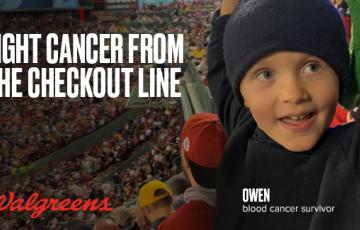
Walgreens, The Leukemia & Lymphoma Society and Susan G. Komen Collaborating to Support Research in Tough-to-Treat Cancers and Increase Access to Care
In February, Walgreens launched their annual spring fundraiser for The Leukemia & Lymphoma Society and Susan G. Komen to enable research in tough-to-treat cancers and increase access to care with a pledge to contribute more than $25 million to the organizations, collectively, through 2024. Through a combination of online and in-store donations, the commitment enables research in metastatic breast and pediatric blood cancers, as well as increases access, treatment and support services for those living with these diseases.

